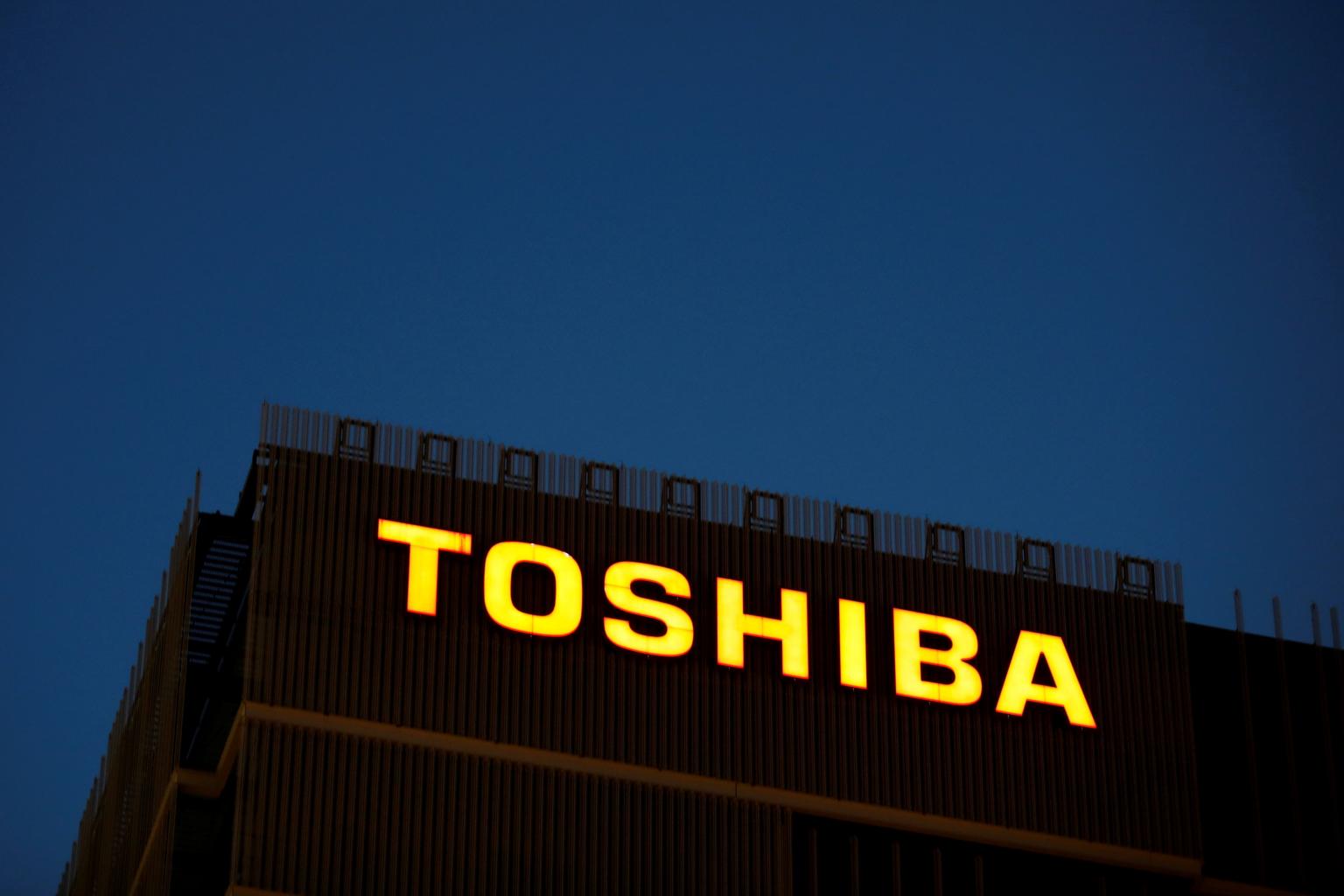Toshiba to split into 3 units after pressure from activists
Sign up now: Get ST's newsletters delivered to your inbox

Toshiba also plans 100 billion yen (S$1.19 billion) for shareholder returns over two years.
PHOTO: REUTERS
TOKYO (BLOOMBERG) - Toshiba said it is splitting into three separate companies as part of an effort to improve shareholder value, responding to pressure from activists after years of scandal and mismanagement.
The company said it will separate core operations into two new publicly traded companies, one for infrastructure services and another for technology devices. The remaining Toshiba business will hold stakes in the two units, with the goal of completing the spin-offs by the second half of fiscal 2023.
The company also plans 100 billion yen (S$1.19 billion) for shareholder returns over two years.
Toshiba, an icon of corporate Japan, has been mired in controversy for years, dating back to at least 2015 when it had to pay the country's largest penalty ever for falsifying financial statements. It followed with an ill-fated foray into the nuclear business that forced it to take a US$6.3 billion (S$8.5 billion) write-down and sell off its crown jewel memory-chip business, Kioxia Holdings.
Activists led by Effissimo Capital Management began circling as losses mounted. They pushed for a shake-up of the company's board, including a resolution to get Effissimo co-founder Yoichiro Imai a position as director.
Last year, Toshiba repelled the activists at its annual shareholders meeting, winning a clean sweep of its own board nominees. But an independent investigation later found management had tapped government allies and worked hand in hand with public officials to sway the outcome of the voting.
The three-way split is among the most radical actions taken by a Japanese giant to address the so-called conglomerate discount. The country has historically been a place where one company manages a wide range of businesses, a strategy that has fallen out of favour in the rest of the world and is often criticised for depressing share prices and hurting innovation.
Firms typically reject such calls for change, saying keeping businesses together helps them weather downturns and societal shifts. Sony Group, for example, insists it was able to achieve highest-record profit due to strong PlayStation units even when its sensor unit took a hit from a drop in orders from China's Huawei Technologies.


